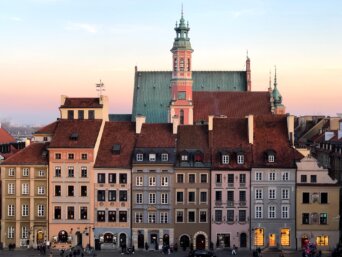- About
- Topics
- Picks
- Audio
- Story
- In-Depth
- Opinion
- News
- Donate
- Signup for our newsletterOur Editors' Best Picks.Send
Read, Debate: Engage.
| topic: | Election |
|---|---|
| located: | Poland |
| editor: | Katarzyna Rybarczyk |
In autumn, Poland will hold parliamentary elections that will shape the country’s democratic future. Although there are still several months left before people actually head to the polls, politicians are already preparing their election campaigns. The possibility of a change in power gives people hope that the elections will bring an end to the controversial rule of the far-right Law and Justice party.
Over the last four years, the Polish government has introduced several policies that have gradually restricted free media and limited women’s rights. It has also undermined the independence of the judiciary branch, as explained by the European Parliament, by turning the Polish Constitutional Tribunal into “a tool for legalising the illegal activities of the authorities”. On top of that, the government has also launched a large-scale crackdown on the LGBTQ+ community, violating people’s right to freedom of expression.
Despite the international community’s attempts to intervene, Polish politicians have turned a blind eye to the concerns of EU institutions regarding the rule of law. This has subsequently cost Poland a large chunk of EU funding.
Poland’s government has used these tactics in an attempt to consolidate its power, all the while showing a blatant disregard for democratic values and fundamental human rights. If the upcoming elections end in the far-right winning a third term in office, Poland will most certainly see a further slide into authoritarianism. What such a scenario would mean for the people of Poland is the need to brace for having more of their freedoms restricted. Minority groups would also have to prepare to deal with continuous discrimination on the basis of gender, sexual orientation and political beliefs.
The Law and Justice party has come under heavy fire after introducing a near-total ban on abortion in 2020. Following the announcement of the new law, hundreds of thousands of people took to the streets to protest. Polls have shown that even among Law and Justice supporters, the majority was against the decision. Consequently, the move that was supposed to please the most radical Law and Justice voters turned out to be counterproductive to the party’s mission.
Adding economic challenges and sky-rocketing inflation into the picture, there are a number of reasons to believe that the future of Poland’s far-right government is not looking bright. Recent polls indicate that citizens have had enough of this dangerous slide in freedoms as support for the opposition parties has increased, leaving the Law and Justice party as the top choice for only 30 percent of prospective voters.
Despite the promising outlook, many Poles continue to wonder: are the opposition parties strong enough to win in the elections?
Only if they work together.
A survey conducted by Pollster Research Institute revealed that if the opposition parties were to run jointly, they would have a chance at winning the parliamentary elections. As divides and differences among opposition parties work in favour of Law and Justice, they need to focus more on working collaboratively to secure their future ability to decide the country’s politics over the next four years. Preventing Law and Justice from securing an absolute majority in the Sejm (legislature) is crucial for Poland to remove populists and nationalists from power and finally get democracy back on track.
Image by Maksym Harbar

